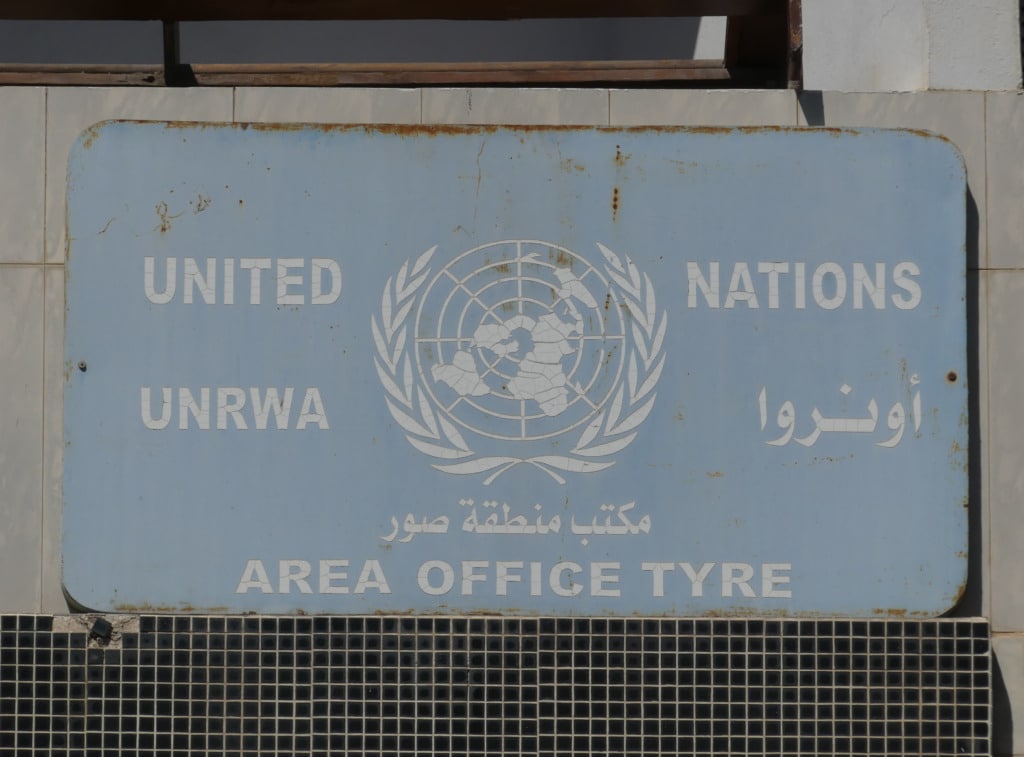Fuld and Waldman Plaintiffs Seek Supreme Court Review
TLB has followed the Second Circuit’s decisions holding unconstitutional the Promoting Security and Justice for Victims of Terrorism Act of 2019 (PSJVTA) and denying an en banc rehearing in Fuld v. Palestine Liberation Organization and Waldman v. Palestine Liberation Organization over a strong dissent by Judge Steven Menashi. As predicted, the plaintiffs recently filed a…
Continue ReadingVictims of Hamas sue UNRWA
Victims of the October 7, 2023, attacks by Hamas have sued UNRWA USA, a Delaware non-profit that provides aid for Palestinians in Gaza. The case is one of several involving the war in Gaza, including one filed by residents of Gaza against the Biden administration and one brought by victims of Hamas against the National…
Continue ReadingVictims of Hamas Bring Suit Related to Campus Protests
Victims of the October 7, 2023, attacks by Hamas have sued two U.S. organizations for violating of Anti-Terrorism Act and the Alien Tort Statute. The nine plaintiffs – U.S. and Israeli citizens – allege that defendants serve as a “propaganda machine,” one that intimidates and recruits “impressionable college students to serve as foot soldiers for…
Continue ReadingSecond Circuit Denies Rehearing En Banc in Fuld v. PLO
Last week, the Second Circuit denied rehearing en banc in Fuld v. Palestinian Liberation Organization, an important personal jurisdiction decision that TLB has previously covered here, here, and here. The denial prompted a dissent by Judge Steven Menashi, joined in whole or in part by three other judges, which in turn prompted a concurrence by…
Continue ReadingThe Challenges of Suing Under JASTA
Foreign states may be sued in the United States only to the extent permitted by the Foreign Sovereign Immunities Act (FSIA). Over the years, Congress has amended the statute to create several exceptions to immunity for terrorism-related lawsuits, especially for those brought against states designated as “state sponsors of terrorism.” But only a very small…
Continue ReadingIt Is Harder Than It Looks to Sue State Sponsors of Terrorism
Rotem and Yoav Golan were injured in a 2015 terrorist attack in Israel when an assailant deliberately drove his car into a crowd of people. The Golans and their family sued Iran and Syria for various torts and for aiding and abetting a terrorist attack. Judge Trevor N. McFadden of the U.S. District Court for…
Continue ReadingSuccessor Jurisdiction and Anti-Terrorism Litigation
Transnational litigation often presents tricky questions of personal jurisdiction. Ongoing litigation in New York arising out of rocket attacks by Hizbollah does so in spades. This post reviews the recent New York Court of Appeals decision in Lelchook v. Société Générale de Banque au Liban SAL, answering a certified question posed by the Second Circuit…
Continue ReadingThe U.S. Takes the Fight Against Bribery to Foreign Officials
American companies, U.S. issuers, and persons in the United States have long been barred from bribing foreign officials under the Foreign Corrupt Practices Act (FCPA). But until December 2023, no U.S. law directly penalized those foreign officials for soliciting or taking bribes. With the enactment of the Foreign Extortion Prevention Act (FEPA), buried deep within…
Continue ReadingFederal Court Enjoins New Jersey Statute Sanctioning Russia
Following Russia’s full-scale invasion of Ukraine in 2022, New Jersey enacted a statute (the “Russia Act”) prohibiting state agencies and political subdivisions from doing business with entities engaged in “prohibited activities” in Russia. In Kyocera Document Sols. Am., Inc. v. Div. of Admin., district court judge Robert H. Kirsch held that the statute is preempted…
Continue ReadingSecond Circuit Hears Halkbank Oral Argument
On February 28, 2024, the Second Circuit heard oral argument in United States v. Turkiye Halk Bankasi A.S. From the judges’ questions—which admittedly came almost exclusively from Judge Bianco—the panel seems likely to hold that Halkbank, a Turkish state-owned bank, is not immune under federal common law from criminal prosecution for violating U.S. sanctions on Iran. That…
Continue Reading






